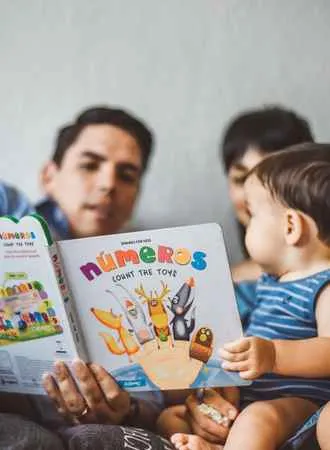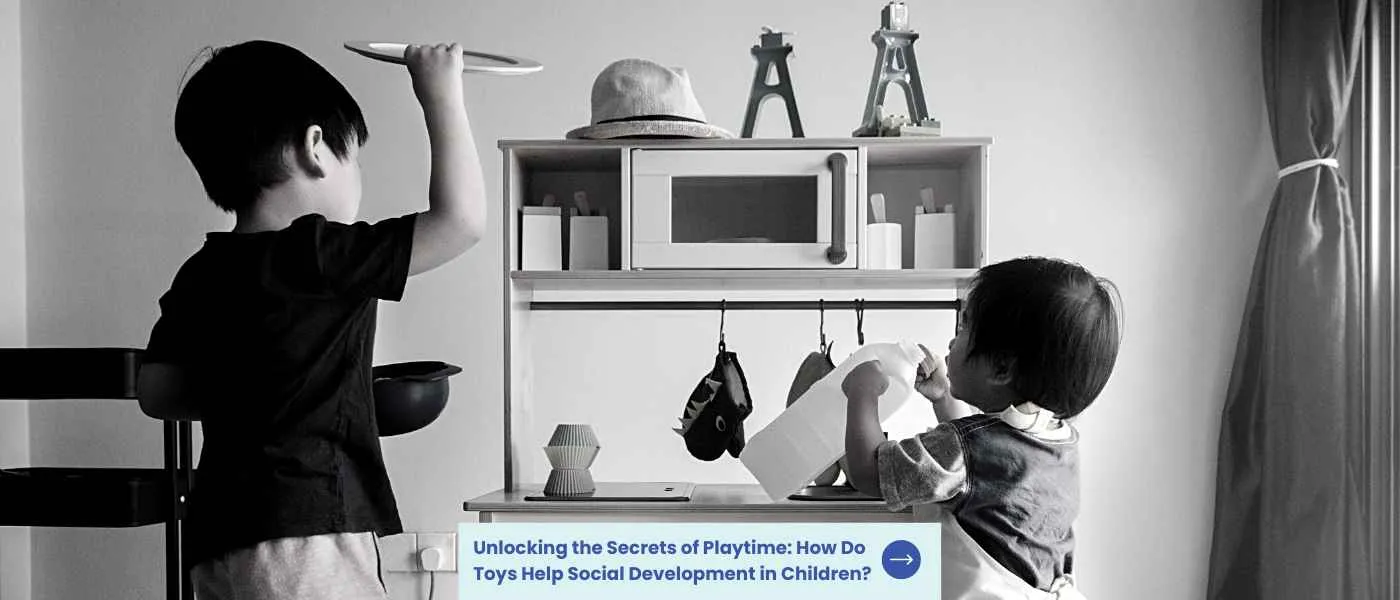In today’s fast-paced, technology-driven world, playtime often takes a backseat to screen time. However, there’s a hidden world of wonders that unfolds when children engage with toys during play.
The simple act of playing with toys not only sparks creativity and imagination but also plays a crucial role in nurturing social development. So, how do play and toys help social development in children, and why is this important?
In this eye-opening blog post, we will delve into the impact of toys on social development, highlighting the essential skills that children gain from playtime and how you, as a parent or caregiver, can maximize these benefits to support your child’s growth.
Key Takeaways on Toys for Social and Emotional Development
- Toys aid a child’s development and mental health, especially in the areas of language, social, and emotional development.
- pretend play is an important part of emotional development in children. By providing a safe and supportive environment for children to explore their emotions and develop important social and emotional skills, pretend play can help children to become more empathetic, self-aware, and confident individuals.
- The best toys for developing emotional and social skills in kids are ones that encourage interaction and exploration.
Toys play a crucial role in promoting social development in children. They serve as tools that not only entertain but also facilitate interactions, teach social norms, and nurture essential social skills.
| Social Skill/Aspect | How Toys Help |
|---|---|
| Sharing & Turn-taking | – Group play with toys, such as board games, teaches children the importance of sharing and waiting their turn. – Playing with a single toy in a group setting (e.g., a toy car or doll) can also encourage children to practice sharing and patience. |
| Communication Skills | – Role-playing toys, like dolls or action figures, allow children to communicate thoughts, ideas, and emotions, enhancing verbal skills. – Cooperative toys or games require children to discuss strategies or negotiate roles, fostering effective communication. |
| Empathy & Understanding | – Dolls or stuffed animals can help children understand and express emotions, fostering empathy. – Playsets, like a doctor’s kit, can help children role-play real-life scenarios, enhancing their understanding of others’ experiences and feelings. |
| Cooperation & Teamwork | – Building sets, puzzles, or team-based games require collaboration to achieve a common goal, teaching children the value of teamwork. – Sports toys, like a basketball or soccer ball, promote cooperative play and teamwork. |
| Problem Solving | – Group challenges, like puzzle-solving or strategy games, encourage children to work together to find solutions, honing collective problem-solving skills. |
| Understanding Social Norms | – Board games with rules teach children about fairness and adherence to social norms. – Role-playing games or toys can simulate real-life social situations, helping children practice and understand social cues and norms. |
| Building Friendships | – Playing with toys in group settings, like playgrounds or playdates, provides opportunities for children to make friends and strengthen bonds. – Shared interest in specific toys or games can be a foundation for building friendships. |
| Conflict Resolution | – Disagreements over toy sharing or game rules can arise, teaching children how to negotiate, compromise, and resolve conflicts amicably. |
| Cultural Awareness | – Toys representing different cultures, professions, or lifestyles can expose children to diversity and promote cultural sensitivity and awareness. |
To maximize the social benefits of toys, caregivers can ensure that children have opportunities for both independent and group play, expose them to a diverse range of toys, and guide them in navigating any social challenges that arise during playtime.
Best Emotional Development Toys
What Is the Role of Toys in a Child’s Social and Emotional Development?
Toys are known for supporting physical and motor development such as fine motor skills and gross motor skills, communication skills and cognitive development. What many people don’t know is that toys have another importance in a child’s development — language, social and emotional development.
Language Development
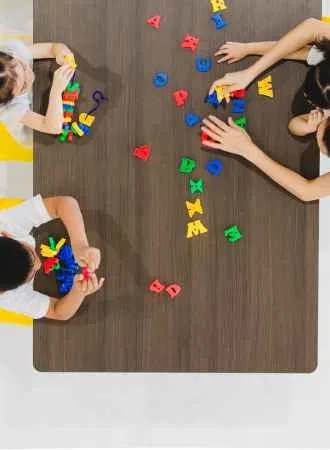
Toys can help develop a child’s language skills in various ways. For instance, toys such as building blocks, shape sorters, and puzzles help children learn new words and concepts.
They also encourage children to communicate and interact with others, which is essential for language development. Dolls and action figures can also help children develop language skills by encouraging them to talk and engage in imaginative play.
Social Development
Generally, play help children develop important social and emotional skills. For instance, playing with toys that require taking turns, sharing, and cooperating with others can help children learn these vital social and emotional skills.
Board games, for instance, are excellent for teaching children about the importance of turn taking and following rules. As a child plays with dolls and action figures, and engages in active play, they learn more about relationships and social roles.
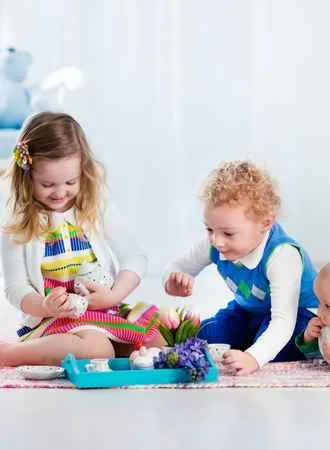
Emotional Development
Toys also play a crucial role in a child’s emotional development. For example, stuffed animals and other soft toys can provide comfort and security, helping children feel safe and loved. These toys can also help children learn how to express and manage their emotions.
Playing with dolls and action figures can also help school age children develop empathy and compassion by allowing them to “role-play” different scenarios and understand the perspectives of their peers. It also helps them deal with rejection and other emotional challenges in their life.
How Does Pretend Play Help With Emotional Development in Children?
Pretend play, also known as imaginative play or make-believe play, is a type of play where children use their imagination to create scenarios and act out roles. This type of play can help with emotional development in children in several ways.
Pretend play allows children to explore different emotions and feelings in a safe and controlled environment. For example, they can act out scenarios where they are angry, sad, or happy. This allows children to develop a better understanding of their own emotions and those of others.
Pretend play experiences and other educational activities can help children develop empathy and understanding towards others. By pretending to be someone else or taking on the role of a character, children can experience the world from a different perspective. This can help them to understand and appreciate the feelings and experiences of others, which is an important part of emotional development.
Imaginative play with a child’s toy can help children learn to regulate their own emotions. When children engage in make-believe play, they often need to negotiate with others, take turns, and share.
This requires them to use self-control, self-confidence and consider the needs of other children. Through social play, kids learn and develop important social and emotional skills that will help them in their interactions with others throughout their lives.
In addition to these benefits, pretend play can also help children develop creativity, problem-solving skills, and language skills. By choosing toys and creating their own scenarios and stories, children can develop their imaginations and learn to think outside the box.
They can also practice using language in new and different ways, which can help with language development and communication skills during the early years of development.
What Are the Best Toys for Developing Emotional and Social Skills in Kids?
Toys can be an important tool for children to develop emotional and social skills. The best toys for developing these skills are ones that encourage children to interact with others and explore their emotions. Here are some examples of toys that can help children develop their emotional and social skills:
- Dolls and stuffed animal can help children learn about empathy by caring for and interacting with them. Children can practice taking care of their dolls and stuffed animals, developing nurturing skills that will help them build relationships with others.
- Board games are a great way for children to learn about taking turns, following rules, and working together. Board games can also help children develop problem-solving skills and learn to manage their emotions in a safe and fun environment.
- Puzzles can help children develop problem-solving and cognitive skills, but they can also help children learn to work together and communicate effectively. As children work on puzzles together, they will need to communicate to figure out the best way to solve the puzzle.
- Learning to play a musical instrument can help children develop emotional skills by teaching them self-expression and teamwork. Playing in a group or orchestra can also help children learn to work together and follow directions as well as build their self-esteem.
- Play kitchens and grocery stores can help children develop social and emotional skills by allowing them to practice different roles and scenarios. Play kitchens, grocery stores and other classic toy playsets allow toddlers experience different feelings, to practice empathy, communication, and problem-solving as they pretend to be chefs, customers, and cashiers.
- Construction toys such as blocks and Legos can help children develop fine motor skills and spatial reasoning, but they can also help children develop communication, collaboration, and problem-solving. As children play games and work together to build structures, they will need to communicate effectively and work as a team.
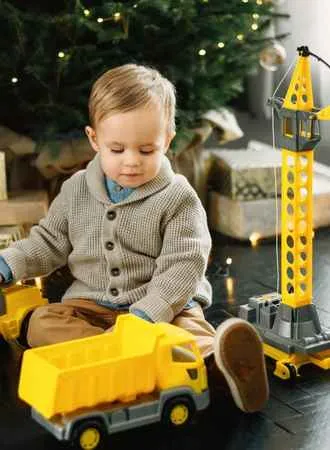
FAQs on Toys for Emotional Well-Being of Kids
What is emotional intelligence in kids?
Emotional intelligence refers to the ability to identify, understand, and manage one’s own emotions and those of others. Emotional intelligence in kids is important as it helps them develop the necessary social and emotional skills needed to navigate the complexities of relationships and social situations.
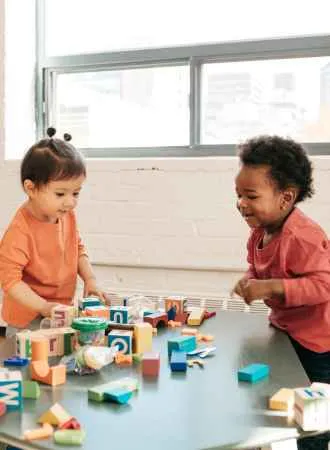
There are four components of emotional intelligence in kids:
Self-awareness
This involves recognizing and understanding one’s own emotions, thoughts, and feelings. Kids with high self-awareness are better able to regulate their emotions and make decisions that are aligned with their values.
Self-regulation
This refers to the ability to control one’s own emotions, thoughts, and behaviors. Kids with good self-regulation skills are better able to manage stress, control impulses, and delay gratification.
Social awareness
This involves the ability to understand and empathize with the emotions of others. Kids with high social awareness are better able to communicate effectively, resolve conflicts, and build strong relationships.
Relationship management
This refers to the skill to maintain positive relationships with others, even in challenging situations. Kids with good relationship management skills are better able to communicate clearly, cooperate with others, and work towards common goals.
Emotional intelligence can be developed in kids through various activities with their friends and family members such as storytelling, role-playing, and mindfulness exercises.
Parents, caregivers, adults, and educators can also focus on helping kids meet their special needs and develop emotional intelligence by modeling positive social and emotional behaviors, providing opportunities for open communication, and encouraging the expression of emotions in a safe and supportive environment.
